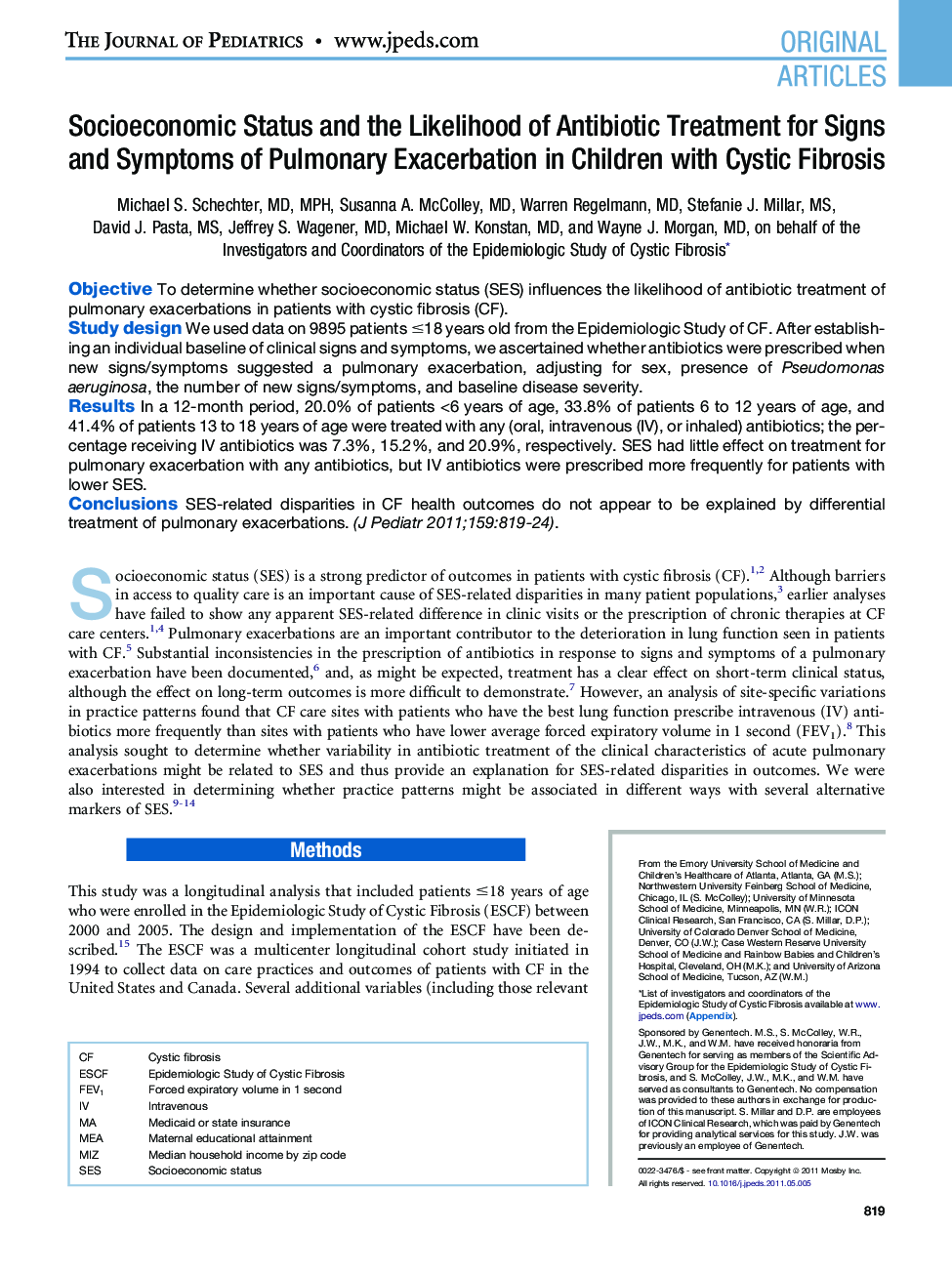| Article ID | Journal | Published Year | Pages | File Type |
|---|---|---|---|---|
| 6225006 | The Journal of Pediatrics | 2011 | 7 Pages |
ObjectiveTo determine whether socioeconomic status (SES) influences the likelihood of antibiotic treatment of pulmonary exacerbations in patients with cystic fibrosis (CF).Study designWe used data on 9895 patients â¤18 years old from the Epidemiologic Study of CF. After establishing an individual baseline of clinical signs and symptoms, we ascertained whether antibiotics were prescribed when new signs/symptoms suggested a pulmonary exacerbation, adjusting for sex, presence of Pseudomonas aeruginosa, the number of new signs/symptoms, and baseline disease severity.ResultsIn a 12-month period, 20.0% of patients <6 years of age, 33.8% of patients 6 to 12 years of age, and 41.4% of patients 13 to 18 years of age were treated with any (oral, intravenous (IV), or inhaled) antibiotics; the percentage receiving IV antibiotics was 7.3%, 15.2%, and 20.9%, respectively. SES had little effect on treatment for pulmonary exacerbation with any antibiotics, but IV antibiotics were prescribed more frequently for patients with lower SES.ConclusionsSES-related disparities in CF health outcomes do not appear to be explained by differential treatment of pulmonary exacerbations.
